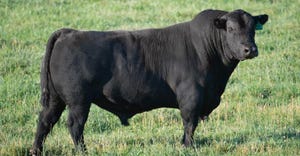Lawmakers agree to replenish USDA’s CCC funds
House advances continuing resolution bill that puts limitations on USDA in bailing out oil industry.

House lawmakers decided late Tuesday to include a reimbursement for the U.S. Department of Agriculture’s Commodity Credit Corp. (CCC) in the continuing resolution bill. The first version proposed on Monday drew criticism from farm state members of Congress. The measure passed overwhelmingly out of the House on Tuesday and will now go to the Senate.
Funds from the CCC support farm programs ranging from conservation to risk management. Farm groups had argued that the CCC was dangerously close to running out of funds, which would have effectively shut down the farm safety net.
This agreement includes important nutrition provisions, including an expansion of the Pandemic Electronic Benefit Transfer (P-EBT) Program for families for the next year and an expansion of this critical assistance to children in childcare. The P-EBT Program provides families with an EBT card to purchase food to replace the school meals their children have missed while learning remotely. It also protects important flexibilities that allow states and schools to provide nutrition assistance to pregnant women, children and families in need.
USDA’s authority to issue child nutrition waivers also has been extended through fiscal 2021 to help mitigate the impact of millions of children losing access to free and reduced-price school meals as schools remain shuttered due to the pandemic.
The agreement will improve accountability in the CCC by banning agricultural funding from being used to bail out oil companies, according to Sen. Debbie Stabenow (D., Mich.), who has been vocal about the desire to attach more accountability to USDA’s purse strings regarding the CCC.
“We secured greater accountability for farmers and taxpayers by stopping the Trump Administration’s misguided plan to give hundreds of millions of dollars of agriculture funds to oil companies,” Stabenow said of the reported $300 million oil payout to refiners that did not receive gap waivers to comply with the Renewable Fuel Standard. “I remain concerned about persistent unfairness in ad hoc USDA payments, and I will continue to provide strong oversight to ensure that every dollar is distributed to the farmers who need it the most during these challenging times.”
Sen. Joni Ernst (R., Iowa) welcomed the agreement, which included the restrictions on using the CCC funds for an oil industry bailout. “It’s pretty clear that it would be unlawful for USDA to use this money to bail out oil refineries, but just in case, we’ve also made sure Big Oil can’t skirt the law on this one. The CCC is meant to support our farmers, and it will stay this way,” Ernst said.
“While we were disappointed it recently became a political flashpoint, we are pleased lawmakers on both sides of the aisle recognize that these funds help to sustain conservation programs and stock America’s pantry,” said American Farm Bureau Federation president Zippy Duvall, who also thanked House Agriculture Committee chairman Collin Peterson (D., Minn.) and ranking member Michael Conaway (R., Texas).
In a statement, Conaway said there was a bipartisan agreement on Friday to fund all of the U.S. government, including USDA so the agency could help rural America and farmers, ranchers and dairy producers through difficult times. Then, the deal was rescinded by Democrat leaders in Congress.
“Thanks to President [Donald] Trump and Republican leaders in Congress who also strongly opposed this reckless stunt, the Democrats finally modified their funding bill to include the Department of Agriculture,” Conaway said. "Had congressional Republican leadership not stepped in, USDA would have been forced to shut down critical farm bill programs supported by wide, bipartisan margins in both the House and the Senate. This would have hurt millions and helped nobody.�”
Conaway said he is pleased that cooler heads prevailed and that USDA will now have the funds it needs to help farmers.
About the Author(s)
You May Also Like



.png?width=300&auto=webp&quality=80&disable=upscale)

